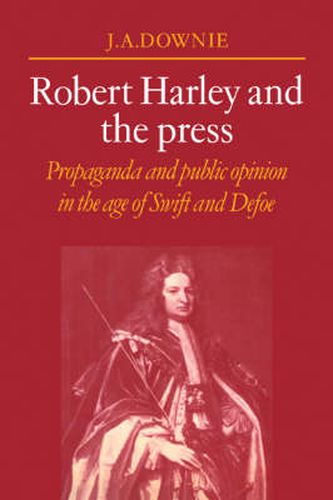Readings Newsletter
Become a Readings Member to make your shopping experience even easier.
Sign in or sign up for free!
You’re not far away from qualifying for FREE standard shipping within Australia
You’ve qualified for FREE standard shipping within Australia
The cart is loading…






In 1695, with the expiry of the licensing act, state censorship of the press ceased. The end of the licensing system coincided almost exactly with the passing of the triennial act, and from the outset there was a discernable connection between electoral activity and the rise of a virulent political press. This study seeks to explain why press regulations were not reimposed to curb the invective of the party writers; and concludes that the principal reason was the development of government propaganda and counter-propaganda agencies under the direction of Robert Harley. Contemporaries were bewildered by the development of a ‘fourth estate’; and successive administrations, brought in through ten general elections between 1695 and 1715, were at a loss when it came to dealing with the problems raised by a free press. But during the course of Queen Anne’s reign a government policy gradually emerged, and arrangements were made for the publication and dissemination of ‘official’ propaganda.
$9.00 standard shipping within Australia
FREE standard shipping within Australia for orders over $100.00
Express & International shipping calculated at checkout
In 1695, with the expiry of the licensing act, state censorship of the press ceased. The end of the licensing system coincided almost exactly with the passing of the triennial act, and from the outset there was a discernable connection between electoral activity and the rise of a virulent political press. This study seeks to explain why press regulations were not reimposed to curb the invective of the party writers; and concludes that the principal reason was the development of government propaganda and counter-propaganda agencies under the direction of Robert Harley. Contemporaries were bewildered by the development of a ‘fourth estate’; and successive administrations, brought in through ten general elections between 1695 and 1715, were at a loss when it came to dealing with the problems raised by a free press. But during the course of Queen Anne’s reign a government policy gradually emerged, and arrangements were made for the publication and dissemination of ‘official’ propaganda.